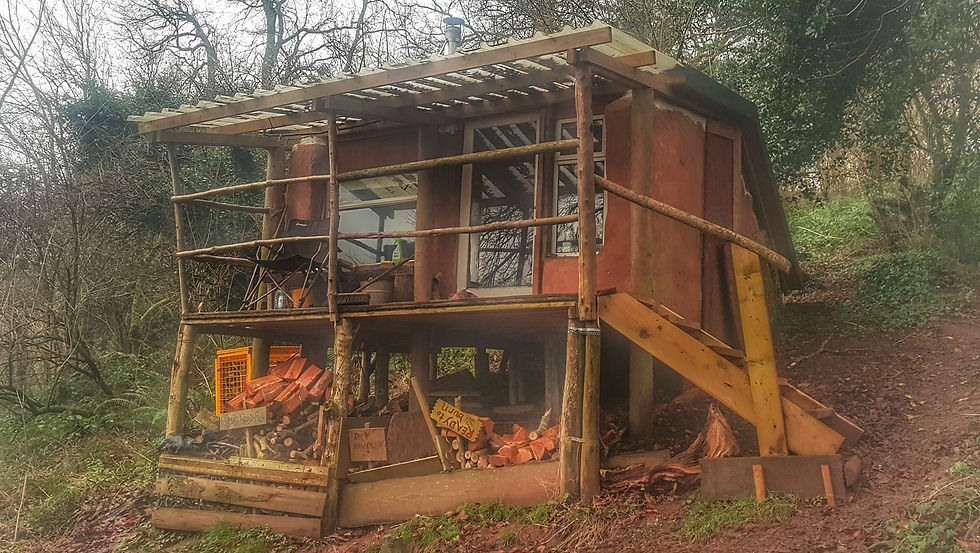Climate crisis misunderstood
- Ulla König
- 9. Jan. 2020
- 4 Min. Lesezeit
The raging fires in Australia and the Amazon, the floods in Indonesia – we are confronted daily with the actuality of climate crisis. While a couple of months ago we might still have assumed that climate change is the future, it has quickly turned into living actuality, causing animals, plants and humans to suffer.
The dimension of the crisis causes strong responses within heart and mind. Humanity has never been challenged with such a drastic change in living conditions. Any response to it must be holistic, tackling the issue from all angles: how we consume, how we decide as a society, how we preserve that which preserves us. A challenge. For all of us.
The media present a vision of dawning apocalypse. We look for support in views and theories. Believes and ideas turn into action and non-action. Some are supportive, others fuel fear or indifference.
“Everything is impermanent anyway”
An overly simplistic conclusion states that the easiest way out of any crisis is just to accept it. Everything is impermanent anyway, hence why care?
It is true, impermanence is an attribute of any object and experience. What comes to be must fall apart. Every relationship, every possession of ours, every sentient being.
Yet this does not have to lead to in-action or indifference. Else there would not be a point in getting up in the morning. Or to establish a relationship. Or to find joy in anything.
To see that everything comes with a date of expiry and will inevitably change into something different does not mean we do not care. Impermanence invites us to meet anything with a light heart. To allow for spaciousness in relationship to experience. A spaciousness which invites a response of calm and clarity.
Any withdrawal into fatalism reveals an incapacity to handle sadness and grief. We’d rather not feel, thus we get indifferent. When we hide behind cynicism, nihilism and disinterest we are unable to find skillful ways to deal with pain. A protection, an escapism, not wisdom.
“All we can do is pray”
On social media I regularly receive invitations to unity with others in prayer. It is a longstanding tradition that people come together to ask divine figures, mother earth or life itself for rain, healing or a change in global politics. Some spent hours on the cushion repeating phrases of mettā (loving-kindness) and compassion, assuming that such an act is a contribution to change.
It isn’t.
The benefit of such practices is their capacity to open up the heart and widen the circle of concern beyond self-centered desires and interests. Practices of love and compassion can cut through the contractions of the heart-mind which stops us from relating to others with kindness.
Devotional ceremonies, chanting mantras and repeating sentences of well-wishing can uplift the spirit and nourish the heart. Yet in and by themselves they have no benefit for others. It is us who benefit. Our hearts soften, feel at ease and open up. Not until an action arises out of these practices any contribution to the well-being of others has been made.
“Everyone on their own”
We live in highly individualized societies, in which we are sold the belief that success and failure, happiness and suffering depend on the choices of the individual. It is a world of ‘self-help’; a solitary. We life the myth of the self-made (wo)man.
This painfully pressures those who do not thrive in a highly competitive and materialistic environment. Their responses of depression, anxiety, and despair get handed back to them as weakness.
Individualism fails us at the latest when the issue cannot be solved by a single person but needs communal effort. Like the climate and social crisis we are living in. Operating on an individual level we try to make the impossible happen: to change the world by changing ourselves. We change how we consume, change our lifestyle and career. We hold each other accountable. Activists turn against activists. And if our hands are not carbon-free, our voice gets questioned. This pressure leads to exhaustion, isolation and shame.
Facing the fact that we contribute to the crisis against the best of intentions can make us resign or turn bitter. While taking personal responsibility, we also need to acknowledge that we are part of the system and depend on it for the support of our living conditions. If we want to see real change happening, we must insist that this very system changes. No withdrawal into the private can compensate for that.
We need laws and structures which protect the environment, animals and plants. We need to reinvent the power of community. And we must reject the assumption that we need to establish a perfect sustainable life before we may raise our voices.
To take action, we need clarity and the power of community. Together we can make a difference. Start small. No need to impress. Bring your talents and your skills to the table. Compassionate action starts with the capacity of the heart to turn towards those who suffer. A heart which is not limited by fear or shame reaches out to engage with the world.
We do not know what the future brings. Relying on hope or quick results will lead us into exhaustion, frustration and delusion. There is no benefit in taking in the catastrophic news on a daily level. We need to keep heart and mind healthy and stable. Meditation, silence, the experience of community, appreciation and gratitude are important. We are in this for the long run.




Kommentare